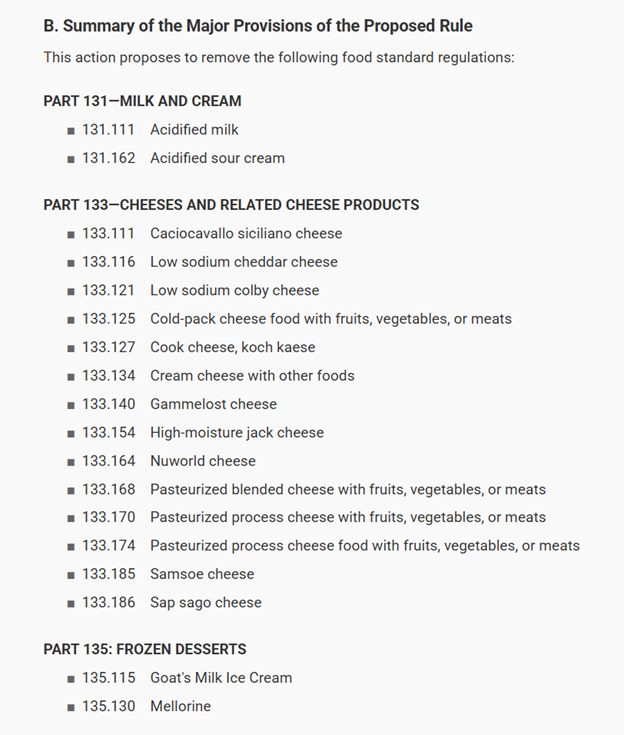Just a couple years after its wide-scale introduction, Artificial Intelligence, aka AI, has already changed how people create, how they interact with the Internet, and how they interact with one another.
But it’s not without pitfalls: From “hallucinations” to hate speech, the quality of AI answers generated by Large Language Models can vary widely, often illustrating a principle that’s much older than the Internet: Garbage in, garbage out.
How does this affect dairy, where overwhelming mainstream support has been tempered by decades of negative misinformation, often peddled by plant-based imitators trying to make a quick buck by convincing people that their concoctions are superior to milk? Armed with an incognito browser window and an intern (thank you for your research, Presley Wirebaugh), we set out to find out what ChatGPT and other LLMs might say about milk. And what did we find?
In many ways, it wasn’t so bad. When it comes to dairy beverage labels, it turns out that ChatGPT’s “thoughts” aren’t that much different from recent heads of the U.S. Food & Drug Administration — it identifies the problem with nutritional confusion and calls for greater transparency. Answers note that milk is nutritionally superior to plant-based beverages, it understands that consumer confusion over the nutritional benefits of milk vs. plant-based is real, and it notes the value of improved, transparent consumer labeling.
Below is one question we asked. Note that we stooped to calling plant-based beverages a “milk,” as we were mimicking queries from less-informed consumers. Also note that the boldface type in the answers is from ChatGPT’s response:
Which is more nutritious: plant milk or cow milk?
Answer: Cow milk is generally more nutritious than most plant milks, particularly when it comes to natural protein content, calcium, and bioavailable vitamins and minerals.
Here’s another:
How should plant milks be labeled?
Answer: Plant milks should be labeled clearly and accurately so consumers understand what they are buying — especially because they are not nutritionally identical to cow’s milk.
One more:
What should I know about the nutrition of cow’s milk?
Answer: Here’s what you should know about the nutrition of cow’s milk — it’s a naturally nutrient-rich beverage, especially valuable for growth, bone health, and muscle maintenance.
Thank you, ChatGPT.
This good news comes with many caveats, often from what seems to be ChatGPT’s efforts to be even-handed to the point where “fair” actually takes a side. Along with the endorsement of milk’s nutritional value is discussion of how plant-based alternatives can also be healthy. The discussion of labeling stops far from fully endorsing the view that dairy terms should never be used on plant-based beverages. ChatGPT states that:
✅ Bottom Line: Plant-based products should be allowed to use dairy-like names if labels are transparent about their origin and nutrition. This ensures both clarity and choice for consumers.
That sounds a lot like the unworkable half-solution FDA suggested three years ago. Still, after decades of demonization, half-a-loaf is encouraging. And as we’ve always stated, once you’ve accepted the reality of nutritional confusion, the need for change becomes clear. It’s a matter of time, and persistence.
So dairy comes out OK on plant-based labeling. In other areas, the limitations of the models, and the power of anti-dairy propaganda, becomes clear. Here’s an example:
What do people like more — plant milk or dairy?
Answer: Among Gen Z and Millennials, plant milk is often preferred, especially oat and almond milk.
“Often preferred” is a pretty big stretch, given that overall market share of plant-based beverages is under 10% and has been falling for years. Are the AI models scooping up old data? Breathless press releases from struggling plant-based companies? More research required.
Even more challenging is what the answers say about dairy’s sustainability.
Which is better for the environment: plant milk or cow milk?
Answer: Plant milk is significantly better for the environment than cow’s milk — across the board in terms of greenhouse gas emissions, water use, and land use.
Ouch.
So — getting out the message of dairy farming’s value as part of regenerative agricultural systems, showing dairy’s progress toward reducing greenhouse gas emissions, optimizing water use, encouraging efficient land use … you know, all the things that go into the FARM Program — plays into winning the battle of a ChatGPT query.
It’s a good story to tell. After all:
- The U.S. dairy industry was the first in the food agriculture sector to conduct a full Life Cycle Assessment at a national scale, in 2008.
- According to an assessment released in May, from 2007 to 2020, the greenhouse gas footprint of farmgate milk production decreased by 13%. And …
- U.S. dairy has set a goal to achieve net-zero emissions by 2050 through developing well-targeted incentives that encourage climate-friendly investments among dairy farmers across all sizes and regions. This comes on top of dairy’s record of animal stewardship and top-level workforce management.
Each individual search, multiplied by thousands per day, every day, adds up to the realities we will increasingly inhabit. And that becomes the new frontier for defining dairy.
This isn’t the AI moment — it’s the AI reality. And just as when the industry has faced past challenges, and just as dairy farmers do every day, innovation will be a must.







